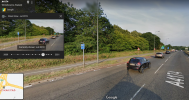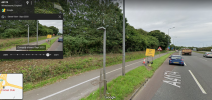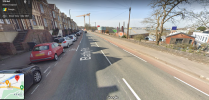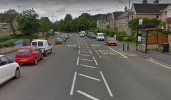Semi-detached housing is also popular in the suburbs of the Netherlands. What percentage of the Greater Manchester population live in detached housing? Can't be more than 20%. People in the Netherlands live in detached housing as well. I've seen loads of leafy suburbs when driving around the Netherlands. In any case, why are you focusing so much on the suburban areas when there are plenty of dense urban areas where it can be done?
It doesn't matter anyway. We've already seen examples of integration in the most rural areas as well as suburban and urban areas. Switzerland famously has plenty of mountain villages where almost nobody lives yet is probably the most famous example of integrated transport.
The perception that tendering is only possible in big cities may come from the fact that London is the only area with full network tendering in the UK, although Manchester is soon to implement it. For some strange reason, in the mid 80s London was tendered with the rest of the country (except Northern Ireland) having deregulation. The rest of the country has tendering only for so-called "socially necessary" (but unprofitable) services. Although in general buses have been unprofitable for nearly 2 years, with the government choosing to simply bankroll existing private companies instead of using tendering. Full network tendering does exist in Jersey, as it has its own government separate from the UK, which I believe is considered reasonably successful.
Well, having recently travelled to Guernsey, higher population density and a fully supported network operated under a cost plus management contract by CT Plus, a brand new fleet and a flat £1 fare, you'd have suspected that this would result in vehicles being well patronised and a lack of private car use. Er no, and indeed, there are several corridors from St Peter Port (to Fermain and Airport, or to St Sampson) where several routes combine to form an overall headway; no hub at the airport, no interchanges.
I think the questions of population density etc are a misnomer and a distraction.
The reality is that franchising, in and of itself, will not deliver better services. Better funding will. If someone is of the opinion that just because you highlight this issue (and they also believe that franchising = integration) then, by definition, you are anti-integration, then sorry but they are mistaken. That's like saying because you don't like the pips in raspberries, then by definition, you must be anti-fruit and by extension, pro-vegetable!! Better public transport is dependant on money - end of story. There's no surprise that those European countries who actually have good integrated transport are just those that invest in infrastructure, invest in services and also seek to limit car usage if not by congestion charging then by making it more difficult to park
https://www.emta.com/IMG/pdf/brochure.pdf. In the UK, how many councils are providing free Christmas car parking...? I've just googled to discover Mendip (Wells/Glastonbury), Worcester, Dudley, Perth, Lancaster.... I could go on and on.
Also, integration must be pursued for the benefits that it will ACTUALLY deliver. It can't be for dogmatic reasons or purity of thought. Do it where it is appropriate, and if you do it, do it well. I know
@Bletchleyite likes to dismiss Gateshead as being clearly daft.... well, yes it was yet it persisted for 5 years but equally, the ones at Heworth and Four Lane Ends survive and thrive to this day. It isn't that integration can't work but it isn't the silver bullet.
If I look at Greater Manchester, franchising is supposed to foretell a step change. Whatever happens, I expect it will occur and it will be portrayed as a success, much like how Brexit and free trade agreements are trumpeted. However, there's few operational savings to be had from margin erosion, very little on-road competition and overbussing, corridors where buses allegedly compete with Metrolink have seen a marked decline in parallel bus services (see Washway Road corridor, Eccles, Rochdale Road). Funding has been earmarked but for capital projects rather than revenue support. However, apparently, the great benefit of this is "integration". That this will solve the traffic problems yet with little in terms of bus priority and no curbs on the private car and with little to no revenue funding... You wonder why I'm cynical.
In Bristol, we spent £230m on the metrobus project. That's the local authorities and what did you get.... Well, the bus companies came in with new vehicles but the
https://www.bristolpost.co.uk/news/bristol-news/first-bus-boss-blames-appalling-3740118 but much of the spending went on two brand new bypasses (albeit with a bus lane on them but one isn't actually served by many buses) and they removed a crucial bit of bus lane which is what James Freeman was illustrating; a temp move that became permanent.
And it's all the fault of the evil bus barons.... Give me strength! By all means, get bus companies to commit, sign on the dotted line, etc but it's up to local and central government to really take some difficult decisions in promoting public transport and not promoting, actively or tacitly, private car use. Franchising, integration.... it's only a part of the picture and it's not the most important element.






